
|
|||||||||||||||||||||||||||||||||||||||||||||||||||||||||||||||||||||||||||||||||||||||||||||||||||||||||||
The wish list thing is working!
They were much appreciated! I got the McCartney album CD and a dozen reporter's notebooks, my favorite way to take notes while I'm programming or writing (along with Pentel sign pens, of which I have hundreds). You guys are the greatest!! PS: Someone bought me a great puppet! Awesome!! Why the press likes Obama again First, I've given Obama another $100 today for a total of $900. It's the 30th, the end of a month. Of the three remaining candidates, he's still by far the best choice. And he still is the best person I've ever had the chance to support, imho. Yesterday he threw Rev Wright under the bus, a term I never liked, and still really don't, but it was the right thing to do, at exactly the right moment, maybe not for cyncial reasons (the ones the press applies) but for moral reasons. If you've been going to a church as long as he's been going to Wright's church, it should take a lot to get you to say what Obama said yesterday. I have friends who have stood by me in tough times, but have done things that disappointed me, and I've taken time-outs from the friendships because of this, but it's pretty rare that the bridges are so thoroughly burned that we never relate as friends again. But it has happened.
Same for a speech at the NAACP. How do I know what's usual there. If you tell me this is how it goes, I have no basis for saying or believing otherwise. But the National Press Club? That I understand, and now I see Rev Wright in a whole new light. I still can't say one way or the other if he acted appropriately in his sermons, but that was not how you address the media. They're too dangerous. That's the way you talk on your front porch on a hot weekday evening, hanging out with your friends, arguing politics and gossiping about a neighbor. Not in front of cameras that are broadcasting your words around the world, when you're talking about someone you supposedly care about, someone who not only is your friend, but is likely the next President of the United States, your country, which you have served, that you say you love.
Anyway, the reason the press is so happy is that they got caught being assholes. It was just a few days ago I was giving them a hard time for the missing mea culpas. Now they don't have to retract or apologize for screwing it up, Obama just gave them cover. And so they're moving on. The Republicans, if they want to bring up this issue, may well find that the press sides with Obama. "We always said Wright was a bad apple," they will say, and maybe even Obama agreed, but he was being loyal to a friend, and who can fault him for that. It's a good quality, but enough is enough. And I don't think the door is closed forever for Rev Wright. You can be pissed at a friend, for cause or not, and come back from it, esp if someone connects with Wright about the seriousness of what he did, and how much damage he might have done if people took him seriously (they didn't) and somehow his condemnation of Obama stuck (it didn't). I believe Obama, and I believe in Obama because I believe in my country. I care about how the Constitution has been trampled in the last 7.5 years, it's going to take a lawyer like Obama who doesn't take shortcuts to first restore our confidence in the architecture of the US, and give us a fresh start in the world, which would see an Obama presidency as a cause for hope for them. Rev Wright didn't get how many of us now look to Obama to lead us, he may not be ready for it, but that's not our problem or Obama's, it's his. Update: Cross-posted at Huffington.
I've read piece after piece about how it's time for Obama to throw him under the bus. But the irony is that he probably doesn't have to do it now. The press created Wright, and they are uncreating him. It's "undo," at a human level. I liken his appearance yesterday at the National Press club to shark-infested water. Wright was joking in a way that one jokes with friends. But he wasn't with friends (though he brought some with him, they were the ones cheering him on). He was in the water with sharks and feeding them high quality chum and putting blood in the water and screaming look I can swim with the sharks, this is fun, it isn't bad, I'm the boss, the new Martin Luther King, but I own the president. I'm the power behind the man, and you're all going to be taking orders from me, starting now. The sharks said "Oh boy a full course all you can eat buffet of human fool!" If the Clintons set this up, as some think they did, they overplayed their hand, they were too good. Eugene Robinson wrote today in the Washington Post: "Politically, by surfacing now, [Wright] was throwing Barack Obama under the bus. Sadly, it's time for Obama to return the favor. " This suggests a one-day conference after the primaries are over with religious leaders of all faiths and races to discuss religion in a world where the President may be of mixed race. Focus on the positive, we're going through all our race issues this political season. It's messy, but we're learning a lot. Be sure to invite many many formerly Republican religious leaders. Some serious lemonade can be made out of the Wright lemon. PS: There's an piece coming soon -- Barack Obama as a coral reef. See this piece on Twitter as a coral reef for a preview.
Om Malik writes about SwitchABit, BetaWorks, Twittergram, John Borthwick and myself. I have a meeting to go to, I'll write a blog post about SwitchABit when I get back. Short version: Excited! Click on the pic for details. Is Rev Wright the new Billy Carter?
Update: Cross-posted at H.
That led me to this question -- how would Gabe know which Twitter account is associated with a given blog? He could scrape, and maybe sometimes the blog would link to a Twitter account in its margins (mine does, for example), but that seems like too much work, and it's too unreliable. Then I thought why not use the same mechanism we use for feed discovery? Indeed. Why not?
What do you think? Update: I added the link element above to the source of Scripting News, on an experimental basis.
At best the MSM got the Wright story wrong, at best it was a mistake. But if it were a mistake, there would have been some mea culpas today, after seeing the Wright interview, someone would have said they got it wrong, maybe even apologized for contributing to the vilification of Rev Wright. But the mea culpas didn't come. They rationalize it, generally, by saying it wasn't a real interview. At least they didn't completely ignore it, but they came close.
On February 3, 1998, she was executed. I wondered why it was so quiet. Why weren't the advocates of the death penalty who said they needed her death to feel closure weren't saying "See I told you so, I feel closure now, don't you?" They didn't say that because they didn't feel it. Murder isn't an equation that can be balanced. You can't balance the taking of a life by taking a life. It doesn't work that way. I'll never understand why we enjoy a circus like the shaming of Rev Wright, a man who should be proud of his life, not ashamed. I feel empathy for the person in the middle of a threatening circle, don't you? I feel empathy for a murderer being put to death. I feel rage for the innocent people who are put to death by the state, in my name, in the name of justice. I think there was silence about the death of Karla Faye because there was so much shame about it. The justice system needed her to shut up. Maybe that's the same reason the press has nothing to say now that Wright has spoken and shows they got the story horribly wrong. Maybe, to preserve their sense of integrity, they need him to shut up. And he's talking. That's a problem for them. Since the press isn't going to cover this, it's up to the people to cover the press. Obama won't talk about it either (makes me wonder about Obama). I think the problem is bigger than getting Obama elected, we need to reform how ideas and information flows in our country. Update: Cross-posted at Huff. Twitter spewage among my contacts On a lighter note... Everyone loves lists that rank people based on popularity and how much UGC the U generates. And of course everyone loves Twitter. So here's the perfect meaningless distraction for a Sunday afternoon with nothing better going on, a ranking of my contacts on Twitter in order of the amount of spew they create! Toxic spew, or green spew, it doesn't matter -- it's quantity over quality, the triumph of Web 1.95. http://twitter.scripting.com/spewage.html Of course Scoble tops the list. I'll let you figure out what that means. I chuckled when I saw Guy Kawasaki coming in at #4. I guess his semi-spam pays off (if this means anything, which it doesn't -- see the disclaimer). If you have any questions or comments post them here. From time to time people have asked me to start an Amazon wishlist. I don't know why I never did it, but last week I was undecided whether I should or shouldn't buy an EyeFi card for my new camera, and thought -- this is exactly the kind of thing that should be on a wishlist. If I get one, I'll review it, but it's not one of those things I'm so sure I'll use that I want to plunk down the money for it. So that was the moment. I started a wishlist. It's linked to in the right margin of Scripting News. If you ever feel like giving me a gift, now you know how to do it. I'll try to keep it stocked with relatively inexpensive things I'd like to try out, or things I need that (again) don't cost too much. Maybe from time to time I'll put a whopper in there, but I don't want to be greedy. Let's see how it works.
She did it again today, made fun of the idea of hope. She says that she and John McCain know how Washington works, and if hope had anything to do with it, they would have figured it out a long time ago. She's got to be smart, an astute politician, but on the subject of hope, she's naive and tone deaf. Even so, I'm sure she's right, there's no hope in Washington. We've been actively killing our empire, at least since Bush took office, maybe longer. The world no longer has to come to us to buy the products we used to make. We're a service economy and we make durable goods. We have lots of natural resources, but not the one we need most, oil. Inflation is becoming a very serious concern, and soon if things go as they look like they're going, it could get really bad. Meanwhile it looks like Bush is going to start another war with Iran before he leaves office, and as with the last war, guess who's helping stoke the fires? Yeah, Clinton is. Even if somehow we could revive our economy, re-educate our workforce, take care of our health, get out of Iraq, avoid war with Iran, we have to look forward to a devastated environment, one that quite possibly won't sustain human life much longer. Certainly not with the quality of life we had in the 20th century. Watching the eloquent Rev Wright last night, and hearing his story of the religion of recent slaves, what else do they have but hope? If your people live in poverty, most of them with terrible futures in front of them, what can get you through the night, other than hope? Hope is serious business for people with nothing to look forward to. If HRC ever had to live on hope she's long forgotten it. But for most people in America, facing an uncertain economic future, with no faith in the sanity of the government (an understatement for me) hope is what we have, Hillary. I expected a roaring debate in the political blogosphere this morning, and on cable news after the Friday night Bill Moyers interview with Rev Jeremiah Wright. Instead, there's eerie quiet. The most I could find was this post on Protein Wisdom saying that Moyers didn't play hardball with Wright. It's true, he didn't. Instead he did what I wish more journalists would, he interviewed him in a way that helped us get to know the person. He let him speak his piece, so we could listen. There's so much to admire about Rev Wright, but first, the shame of the professional media, who hounded not only Wright, but members of his congregation, incluing a woman in a hospice, to try to uncover more dirt about Wright and thereby embarass Barack Obama. Wright isn't running for office, he points out, it isn't his job to get our vote, it's his job to help his congregation, to help them understand the world they live in, to help them do better in that world, and to prepare them for what they believe comes in the afterlife.
I think the silence comes from the fact that there still is some humanity in the press and in the blogosphere, and those who watched Moyers and really listened to Wright, realized that he's not a liability to Obama, he's an asset. At least some of the polish, the quiet confidence, self-respect, intelligence and grace we see in Obama must have rubbed off this man. Watching Wright gave me pride in being an American, and shame at the same time, for coming from a country so willing to objectify and villify this person before checking out whether the characterization was accurate. Even the supposedly courageous and thorough NY Times calls his oratory "racist" in an editorial in today's paper. Based on what? I've watched the sermons that have been excerpted; if these are racist, then every other preacher in the US is racist too. Wright says the religion of the people on the deck of a slave ship must be different from the religion from the people under the deck. On the deck, god is justifying the practice of slavery, and below -- god gives them hope that someday they will be free. My people, the Jews, understand this very well, it's part of our tradition. We've just celebrated the holiday of Passover, a feast that's all about the pride of an enslaved people. If we're still telling the story, passing it down from generation to generation, after 3000 years, why should we be critical of the African-Americans who are telling the story of their enslavement, which ended only 145 years ago, and whose manifestations are still with us today. We, the United States, have made mistakes, and those mistakes are as much who we are as our triumphs. The failures leave behind people and their culture, their music, their legends, their religion and their hopes. Sure it seems strange when you hear it for the first time, but that's good! Because the second time it's not so strange, and eventually it becomes part of our melting pot, and enriches all our lives. If you haven't watched the Wright interview, make the time to do so. You won't be sorry. Update: Cross-posted at Huffington.
I was able to watch the Wright interview on adamdeyong's Slingbox in Newport News, Virginia. I recorded it, but now the video is available on the PBS website, and the audio is at the link below. http://www.pbs.org/moyers/rss/media/BMJ-1203.mp3 Thanks for this very excellent program! Bill Moyers Journal this evening will have Rev Wright as his guest, and it won't be broadcast in the Bay Area until 10PM Pacific. It will air at 6PM Pacific on WGBH in Boston.
We need at least audio access to the interview while it's being aired on the east coast, and ideally an MP3 to distribute via BitTorrent starting roughly at 7PM Pacific. Would anyone on the east coast like to help out? Please post a comment if so. Given that it's PBS, the program may be available on the web at the same time it airs on the east coast. If you have any information about that, it would be much appreciated. There might be two or three people who can use this tool. I'm one of them, that's why I developed it.
You'll never see one of these scenes on TV because there's a rule that the broadcasters are not allowed to follow the drunk baseball fan onto the field. If they were to broadcast the drunk fan, the theory goes, that would just encourage more people to do it, meaning more delayed games, annoyed players, offended fans and busted streakers. It seems to me this very simple rule should be adopted by news networks when it comes to the most hideous attack ads. Example. The North Carolina Republican Party has yet to spend a dime running a racist attack ad against Obama, one that McCain and the national party swear they don't want them to run. But millions of TV viewers have seen the ad, repeatedly, run for free on CNN, MSNBC, Fox, etc. This seems grossly unfair, and how does it not count as a campaign contribution? We've seen this before, Bush swore that the swiftboat ads that questioned John Kerry's honor and patriotism were unfair and he didn't want them run, but they helped him anyway, and somehow I doubt his sincerity as I doubt McCain's. But you can't really blame them, in this age many candidates believe they must do whatever they have to do, no matter how immoral or unethical, to get elected. In the analogy, they'll always run onto the field, naked if they have to, to get past the competition. But why should we tolerate the news organizations giving free air time to the campaigns? Aren't they making an illegal campaign contribution when they run a Republican attack ad without giving equal time to Democratic attack ads? Maybe they could invoke their integrity (as they so often do when it suits them) for the good of the electoral process and force the attackers to pay for the air time? And maybe if they weren't granted so much free air time, seemingly in proportion to their ugliness, perhaps fewer of them would even be produced. Update: Cross-posted at Huffington.
I've watched some of the sermons that are excerpted, in their entirety, and in every case the soundbites do not express his meaning. In every case I found the Wright sermons not only fair and American but compelling. As much as any Christian sermon I've heard, more so than most. I also understand that black churches are different from white churches. I don't go to either, never have, doubt I ever will. Churches are a totally foreign experience to me. If you made me choose candidates based on the sermons their preachers give I couldn't, and I find it insulting that some people think I should. I think they have lost their way, they have lost their American-ness. At least as I understand it. This country was founded without a national religion. You aren't entitled to impose your religious values on anyone else. It's right there up front in the beginning of the First Amendment: "Congress shall make no law respecting an establishment of religion, or prohibiting the free exercise thereof." If the pundits make a difference, then we have to do something about this. I think the only remedy that's going to work is to take this out of the realm of partisanship and outside the realm of punditry. Ask a couple of widely respected Americans, one from each party, to view all the tapes of the Wright sermons, and to talk privately with members of his church and the reverend himself. Listen to both sides. Take testimony from people who object. Get a lawyer to represent the p.o.v that Wright disqualifies Obama to be President and hear him or her out. Depose witnesses. Get someone to take the other side, whatever that is. Let's have a trial. Let's get this out of the realm of sensationalism. We have to create our own venue because the existing ones aren't fair. My guess is that it won't take ten minutes to see that this is all about race. That the supposed strangeness of the black church is the only issue. I believe this because at first I found the Wright soundbites very offensive, but over time, as they became familiar, I couldn't remember what the fuss was about. I think the whole thing loses its power as it becomes less strange. And the best remedy is to make a huge deal about it, but outside the realm of the idiots on cable news. Dignify the whole thing and the issue evaporates. The press likes to position itself as the referees, which implies a standard of fairness and impartiality and adherence to well-understood rules. They are only referees in a world gone mad. Let's now create a venue for public discourse that is fair. Fred Wilson: "At least Barack is not running away from who he is. Hillary is pretending to be a Republican man." Obama leading McCain in Minnesota Rasmussen Minnesota poll: Obama 52%, McCain 38%. San Francisco from Indian Rock Hillary explains what superdelegates do HRC: "Voters are an important part of the process." http://sundaygang.com/clinton/2008/04/24/hrcOnVoters.mp3 For the full context see Jon Stewart on the Daily Show. John McCain a Martian? You decide.
John McCain, spawn of the devil? You decide.
Nancy & Newt siting on a couch
Dusty Miller is "grown primarily for its attractive silver-gray foliage..." I started a chatroom for tonight's primay. irc://irc.freenode.net/#PennsylvaniaPrimary CNN, MSNBC say it's too early to call but HRC is leading. How to follow me on FriendFeed I'm designating FriendFeed as my backup, when Twitter goes down, you can catch my stream, uninterrupted, over there. Here's how to follow me on FriendFeed. 1. Open an account on FriendFeed, or sign in to an existing account. 2. http://friendfeed.com/davew 3. You should see a "Subscribe to Dave Winer" button below my name. Click it. 4. When Twitter goes down, you can get my full stream, uninterrupted, at FriendFeed. I won't be able to tell you that when Twitter is down, so try to remember it. 5. If you prefer to use a different service, let me know, and I'll try to set it up so you can follow me there. If you can set it up yourself, here's the OPML version of my stream (the source), and the RSS feed derived from the OPML. Pretty sure I'll release the OPML Editor-based tool I'm using to manage the stream. How to decouple from Twitter, now Twitter is still out. Mike Arrington posits that because they have a monopoly there is no reason for them to hurry to get back online. I agree. That's why we have to break the monopoly now. And it's not as dire as it may seem, esp for people who use a desktop client. Here's what the developers of these products can do to make users safe from Twitter outages: Offer users the option to have their stream of outbound tweets saved as an RSS feed that can be read by FriendFeed and other RSS-based tools, in addition to posting directly to Twitter. Then, the user can do what I did in FriendFeed, point it to the RSS feed, and turn off FriendFeed's connection to Twitter. In FriendFeed, everyone will still see your updates though a little more slowly. And when Twitter goes down, everyone who cares about your updates can switch over to FriendFeed, perhaps temporarily. That's what Scoble is recommending. I think FriendFeed should deliberately try to appeal to Twitter users, by reorganizing their UI to be familiar to us, but so far they haven't wanted to do that. However, at some point, some ambitious entrepreneur is going to want to compete with Twitter directly, and all they'll have to do is latch onto our RSS feeds and voila, you don't need Twitter to be up to have the same effect as Twitter. (Is anyone out there ready to go? This would be a fantastic week to launch.) The only way this bootstrap can happen is if Twitter is down for an extended period while important stuff is going on. Well today is the long-awaited Pennsylvania primary, and the Web 2.0 expo is happening this week in SF. How will we manage without Twitter? Necessity is the mother of invention, imho. I'd encourage the people who make the desktop tools to get on this right away. If developers want to discuss it here, I'll be online through the day (and grasping for whatever returns are coming in from PA).
A new strategy for Twitter outages Okay, I've bit the bullet, I'm going to change what I do when Twitter is down. 1. When Twitter is down I will post updates to an RSS feed. http://twitter.scripting.com/daveRss.xml2. You may follow this feed in any tool that can follow an RSS feed. These include FriendFeed, Jaiku and of course many others. I want to accumulate a list of services that can follow RSS feeds in a Twitter-like fashion (i.e. river of updates). If you know of others, please post a comment here, with detailed user-level instructions for following a feed. I will try to figure out how to add a feed to my profile on FriendFeed. (Any help would be appreciated.) I feel pretty good about this. I have a nice tool that I might use even when Twitter is up. Update #1: I've fixed FriendFeed so it's now following, in addition to the feed for scripting.com, and my Twitter and Flickr accounts, also my "rainy day" feed, above. So, if Twitter goes down, you can just start using FriendFeed instead if you want to follow my tweets. Pretty cool. Let's hope they know how to scale! Update #2: Here's a screen shot that illustrates items from the rainy day feed showing up in my FriendFeed stream. If you follow me over there, you'll get the updates automatically, you don't have to do a thing. Update #3: Here's a screen shot of the outliner-based tool that I use to author the rainy day feed. I've turned off the connection betw Twitter and FriendFeed, so I'm now committed to using this tool to author my Twitter stream. I think it'll be okay. Already my posting volume is back to normal, even though the Twitter outage persists. If this were a normal day on Twitter...
Yes, it serves me right, and I, of all people, know better, than to build a network on a single point of failure, depending on one company, that is known for producing unreliable systems in an industry with incredibly thin skin (how can they get better if they won't listen). In other words, this is hardly Murphy's Law, it was easily predictable. It was likely.
We need some big infrastructure companies to get into this game. One is not good enough. We also need standards so that tools that are built to work with one work with the others. There's no time for a standards body, so if you're getting into this business, please, just use the Twitter API, as imperfect as it may seem. No matter how reliable Twitter seems in the future I won't change my mind about this. We need them to have serious competition, so we have a Plan B when something like this happens, which it will, not a matter of probability, imho. Update: A new strategy for dealing with Twitter outages. A "rainy day" RSS feed of downtime tweets. Important if you depend on my twitterings. Monday morning, the outage that started Friday night, is still going on. As a test, I posted a picture last night before signing off, only 62 reads, which is very low for a link that should have gone to over 8000 people. (Admittedly it was Sunday night in the Calif, but Twitter is a world wide thing, and it's already 7:30AM on the east coast of the United States.) Also, still no notice of the outage and what they're doing to clear it on the Twitter blog. Not good. :-( PS: Amazon CTO Werner Vogels checks in on the Twitter outage.
Further, to call most of the posts that show up on Techmeme "tech" is a bit of a stretch. Most of the authors don't know the first thing about technology, never took a computer science class, have never written code, and don't admit that understanding tech is a prerequisite for writing about it. Further, most of the articles that get linked to by Techmeme aren't about technology, they're about who's buying who, or who's on top of who, or advertising, bubbles, PR, linkbait, etc. BTW, I temporarily turned off Techmeme so no one can say I'm trolling for links from Techmeme.
Same thing happened with a picture of Wikimedia Foundation lawyer Mike Godwin that I took at the French Hotel in Berkeley yesterday, and a post-seder movie walk through an amazing candy store in Lafayette, taken with my new camera (it takes great movies too). I also noticed that some of my twits from Friday night were gone. And I had said some controversial things that no one had agreed with or objected to. Usually when Twitter goes down you get a screen saying it's gone, but this is a new kind of outage, and obviously not a good thing. Congratulations to founder Richard MacManus and the team at ReadWriteWeb for achieving five years of technical excellence. Keep up the great work!
Suspension of disbelief applies to networking
The concept comes from the movies or is it literature. When you're watching a great movie, like The Godfather, Casablanca, The Departed or Chicago, you get sucked into the plot so much that your mind is in the reality of the movie, not the reality of the theater. Music can do it. I'm listening to an old Elton John song I haven't heard since the 70s. I remember being a high school student listening to it on the car radio as I was learning to drive. "Hand in hand went music and the rhyme." Suspension of disbelief can be experienced, profoundly, when you're interrupted. If all of a sudden during a great Bogart/Bergman scene the lights come on or the film breaks. You're sitting there in a room, where did this room come from? I was in Morocco, now I'm in West Newton, MA. It was hot, now all of a sudden I feel cold. Getting Suspension Of Disbelief broken is like waking up from a dream that felt real. I mention it because in the last few days I've discovered that the concept applies to the Internet too. All of a sudden I have a roommate as I use the net, a very judgemental person who has a very strong opinion of how I should be using it, and how my use of it departs from their expectation. From Comcast's Excessive Use FAQ, these are examples of activities that represent excessive use. Sending 20,000 high-resolution photos, Sending 40 million emails; Downloading 50,000 songs; or Viewing 8,000 movie trailers. It's not so much the numbers that disturb me, after all none of these represent any of the things I do with the net. However, I do definitely download more than 20,000 medium resolution pictures a month. They're not high-resolution, they're medium. And this is a totally legitimate, legal and wonderful use of the net, imho. And one that I'm fairly sure zero people at Comcast have even heard of, much less understand. I definitely don't send 40 million emails. I get it, they want to shut down spammers. Good, I support this one, for sure.
What does Comcast think about movies on the Internet, after all it competes with the cable TV services they offer. I imagine they think I should just use their movies on demand. What does Comcast think about podcasting? How about RSS aggregators? Do they know what these things are? How many podcasts can I download without seeming weird? How many news feeds? I have an application that reads about 100 feeds every ten minutes. So that's 600 feed-reads an hour, or 14400 per day, or 432,000 a month. Does that seem excessive? Not to me, but I could see where Edgar the Comcast Cop might think so. (And the NY Times and the BBC, who provide the content, know I'm doing it, and they don't object.) Here's the problem. When they say I am in the top 1/10th of 1 percent of all their users, they're right -- in terms of the weirdness of my use of the net. I'm doing things that almost no one else is doing. But that's the cool thing about the Internet, I'm allowed to do that. It's none of their business what I use the net for, anymore than the water company can prohibit me from making lemonade or beer from the water they deliver to my house. The bread company is not entitled to an opinion whether I make a tuna sandwich or French Toast, or feed toasted crumbs to birds who live in my neighborhood. Ford Motor Company can't stop me from using my car to drive to Tahoe or to Vancouver or to Santa Cruz. I can even use the car to transport CDs I borrow from a friend who lives on the other side of town. These are my choices, and none of their business. I get concerned because the stuff I was experimenting with ten years ago hasn't even shown up on today's Excessive Use FAQ. This is all old stuff now. Do they understand what FlickrFan is, and why a user might very legitimately and legally want to download over 20,000 pictures a month? Read their FAQ and see if it doesn't chill you, if it doesn't alter the way you use the net, if it doesn't break the suspension of disbelief. There's a very inappropriate Big Brother feel to it. They need to get out of my space, as long as I'm a customer who pays his bills, how I use the net is none of their business. If they want to change the terms to limit the amount of bits that can travel to and fro, fine. But I have a feeling they care about things other than how much, they care what -- and that's wrong. They ought to be very careful about expressing these opinions, and they aren't being careful. I've been here before, in 1999, when Conxion cut me off because I used a T1-line I leased from them to criticize their service. It's not a good place to be. Do you think it's excessive use of Comcast's service to use my cable modem to criticize them, as I'm doing here? Hmmm. Worth a bit thought.
For example, I said it to Edgar, the Comcast rep who threatened to cut me off and refused to put it in writing. I also included the fact that I told him, and his response, in the report, because I want my readers to know that he knew he was on the record. I also want to influence other bloggers. People have a right to know when they're speaking publicly and when it's private. Some people have suggested that this means that I'm wrong for believing that the other person might care, or thinking that they should. Well, I haven't said that I thought they would care, in fact, I've never had a company rep say it made a difference, they always say it doesn't, and have never seen it actually make a difference in the treatment I get. Now, if you ask me should they care, I would say yes. One of the reasons I believe in blogging is that it can reform business, giving power to the users, where we were powerless before. If I didn't have a blog what could I have done to get Comcast to pay attention? Tell my friends and relatives? Sure, they know that isn't very powerful. But when any customer could also be a publisher, well that does change things. This new power to publish can help us all get a better deal. These days I never make a purchasing decision without looking on the Internet to see what other people's experience has been. I've had people tell me that when I write positively about a product, they buy it. I've also heard people say that if I've had a bad experience, they don't. And I don't think it just applies to business. I think it will eventually get us better political leadership, it might even that effect this year. For the third time in three days, my Comcast service is out. I'm posting this using my EVDO modem. The first time it was deliberate. The second time they say it was natural. I'll let you know what it is this time. I've twitted comcastcares. Cable TV seems to be out too. PS: These are the first outages I've had in almost 2 years living in this house. PPS: 11:30AM it's back up. Okay my inner-8-year-old really likes this one! Here's a YouTube video of Obama speaking yesterday. At 1 minute 20 seconds in, while he's talking about Hillary Clinton, he scratches his cheek, and instead of using his index finger, he flips her off. LOL! NakedJen is featured in a NY Times article about people who write about divorces on blogs.
A ten-minute quickie rant. http://sundaygang.com/dave/cn08Apr17.mp3 Hey Barack Obama was really saying something important in the "bitter" quote and in last night's debate, and all the idiot pundits on TV are blowing by it. I got a new camera, first one in 4 years. Click here for a set of pics taken on a Berkeley neighborhood walk this afternoon.
And so I was blissfully forgetful until I read, on Twitter, that Dave Sifry was testing the bandwidth on Comcast with PowerBoost and was blown away by how great it was. I had Comcast as a backup, rarely used it, so I hooked it up, tried it out and I got even better bandwidth than Sifry did. Amazingly I was getting 28 megabits down, about 3 megabits up. So I started using it on my LAN, I kept my DSL service, but I'm not using it as much. Then this morning around 9AM the service went down. I called the service number, and was quickly directed to call a special number. I couldn't record the call because I didn't have Skype working, but I wish I had found a way. The recording said I was talking to their legal services department, Press 1 if you are stealing content, 2 if you are using too much bandwidth, 3 if Comcast hates your guts, 4 if you're a criminal. (I don't remember the exact wording, this wasn't it, but the implication was that I was guilty of abuse, me, a paying customer, in good standing. By pressing a button I was admitting to doing something wrong.) Update: Later I called the number back and recorded the opening sequence. I was quickly connected to a man who told me I had been deliberately disconnected because they had tried to call me and I didn't pick up. The number they called was my Blackberry, which I disconnected a couple of months ago because I never use it, I much prefer the iPhone. Then he threatened me. He told me I was in the top 1/10th of 1 percent of all their Internet users and that if I didn't immediately stop using so much bandwidth they would suspend my service for 12 months. I asked if I could get this in writing, he said no. I asked how much bandwith would be acceptable, he wouldn't say. I told him this wasn't much of a threat if they weren't willing to put it in writing, and I wasn't intimidated. I also told him I was a blogger and would be writing it up. He didn't care. Now, before I called the first number, I posted about the outage to Twitter, and sent a direct message to comcastcares, an amazing account, staffed by a guy named Frank who works at Comcast in Philadelphia, who really does seem to care. A few days ago, Mike Arrington of TechCrunch mentioned on Twitter that his Comcast service was down, they contacted him immediately, and had a service tech at his place the next day (I think). Mike was so pleased with the service he said he'd be willing to pay double if they could keep it up. Pretty impressive. So I spoke with Frank on the phone after receiving the threat. He asked me to write it up, and I am doing so here. I also recorded a podcast with Christina Warren of Download Squad. A bunch of ideas and questions resulted.
2. I used AT&T DSL the same way I use Comcast and they never threatened me. So their claims in their commercials that they're better than AT&T are bogus. I still love Comcast's commericals, esp the faux news announcer and the turtles, all who ridicule AT&T but I think Comcast is dishonest, they're selling something they don't deliver on. (Except PowerBoost really is awesomely fast when they haven't cut you off.) 3. I can see where people would be very intimidated to have their service turned off and to be lectured the way they lectured me. 4. Honestly, I think Comcast should give me my service for free and let's work to create new services that use more bandwidth so they can sell them to customers as part of the upsell to people who use a lot of bandwidth. 5. I figured out why I use so much more bandwidth than the average Internet user. I have five computers, all Macs, all sucking down FlickrFan pictures once an hour. That adds up to quite a few gigs. It would be easy to cut back. Not sure I will though, cause I hate to be lectured and threatened by companies I pay $180 per month to. 6. The thing that amazes me, that is totally unacceptable, is that they refused to put the threat in writing. I knew, having dealt with lawyers enough, that I had a right to receive the threat in writing, and I wanted to scan it and put it on Flickr along with my $3 million Comcast bill. 7. I've now spent all of today working for Comcast. Should I send them a bill? 8. What's the big issue with bandwidth anyway? Does a company like Comcast pay their ISP for bandwidth? Do they even have an ISP? Update: A plausible explanation of why they'd want to constrain bandwidth usage.
I woke up the other day motivated to learn XCode 3.0 and make some small improvements to the OPML Editor. I want to add a few verbs that make it easier to monitor object databases that grow large. I would have put these features in years ago if I knew that this would be the big hassle in keeping a server-side OPML app running. So I tried getting it to compile, but the Mac headers are a moving target and now there are lots of warnings about things being deprecated (these obviously aren't deal-stoppers) but there are also errors. It's been a long time since I worked in C on the Mac, so I thought I'd ask for help. If you're a Mac developer and have a few spare cycles, what changes are necessary to get the project to build? The source code is here. http://sourcelisting.scripting.com/code/OPML-10.1a8-src.zip Any help would be much appreciated. Gallup daily tracking poll: Obama 51%, Clinton 40%.
Update: The NY Times, unlike other MSM outlets, gives proper credit to Fowler. Hillary Clinton says that the last two Democratic candidates lost because Republican charges that they were elite stuck. My response: This time is different. Gore had the baggage of the Clinton presidency to overcome, and even so the race was so close that many people felt he actually won and his election was unfairly overturned by the Supreme Court. I voted for Kerry, but with far less enthusiasm than I will vote for Obama, a candidate I believe in. I believe Obama made a mistake, but there's no choice as far as I'm concerned, between him and the other two candidates. HRC is every bit as elite and far more out of touch, and too cyncial to be my President. McCain is a slightly better George Bush, we need a sharp turn away from Bush, and only Obama offers that.
On the other hand, it seems at this time that Obama is going to have to attack HRC really hard, to knock her out. I think that's what the press wants, and I think that's what this ominous poll from Pennsylvania is saying. To close the deal, Obama is going to have to kill the Clintons, politically. It's not enough to hope that they'll just go away. He has to do it to them. I don't like this because it hurts the possibility of him having a positive Presidency, but I think it's what it's come to now. I'm sure some of my friends who support Obama will disagree. It's time for the Obama campaign to engage with the press. A detailed campaign to explain, publicly, why Obama is much more competitive against John McCain in the general election. Why aren't they responding to the Clinton claims that he can't beat McCain. Respond to the kitchen sink campaign on every detail. You may not respect HRC, but you have to act as if you do.
I winced when I heard the quote that's making the rounds this week in the political blogosphere. I didn't like it because unlike the Rev Wright controversy, I doubt if much good can come from it, and because my guy, Obama, was, imho, wrong. By his own standards, the comment was wrong, and I hope he gets why. To equate geography with intellect is as wrong as to equate it with race, ethnicity, gender or age. It may be true that there are some people who live in small towns in rural America who are bitter and closed-minded, who have bad lives and blame the badness on illegal immigrants, gay people who want to get married, or conspiracies to separate them from their guns. (I've deliberately overstated Obama's quote, to be in line with what people who don't like him react to.) But it certainly isn't true of all of them, and as long as there's one good person living there, it's unfair, it's wrong to make general statements about the class. This came home when, on Twitter, I said I thought he was wrong, and a correspondent from Texas suggested it may be because I come from Berkeley and people from Berkeley are more "insulated" from some reality they aren't insulated from in Texas. I could have responded by saying something generally negative about people from Texas, and that would be on par with the kind of discourse we've been having in the US for the last few decades. I didn't. We have spirited political discussions in Berkeley, which disproves the idea that you can predict the way someone thinks by knowing they come from here. Now I like Obama because he rejects this kind of thinking. He wants us to look at black people, and consider the possibility that they're smart, caring people who value the good things we believe in, education, good health, being kind to others, etc. He wants blacks to look at whites and not see superficial good-weather friends, people you can count on, brothers and sisters even. I could go on. This is my philosophy too. And after the election of 2004, I wrote that this time the middle of the country was insisting, over the objections of the two coasts, that we have to work with them before we can go where we think we need to go (i.e. get out of the Iraq misadventure). A high price to pay to get us to listen. And did we listen? Well, in his awful quote, Obama said no -- we aren't. Because when you reject people as a class, that's what ignorance is built out of, literally, it's how you ignore what's real, and respond to your beliefs, which are usually fairly negative. It's the opposite of respect, and it's wrong. Now I believe that Obama is a good man, and really believes the things he says, but he's tired, even exhausted from the campaign and he slipped and made a mistake. If we believe our Presidents don't make mistakes, surely the last 15 years, two terms of Clinton and Bush, convinced us that our Presidents are very human and they make lots of mistakes, some very big ones. So, making a mistake certainly does not disqualify Obama. The other two remaining candidates, Clinton and McCain have made far worse blunders, and have retracted them, and we've let them off the hook. I wonder if it's possible for Clinton to get up and say, okay, can we call it even. I did something dumb with the Bosnia story, and Obama did something dumb with this story about rural people clinging to superstition. I know I'd respect HRC about a billion percent more if she could do that. And it certainly seems within the realm of possibility that McCain might. Check out this ad he did about discourse in the United States and see if it doesn't put a lump in your throat. It's worth playing every time it seems the Republicans are about to sling some mud. Yeah I'm optimistic. I think some good can and will come out of this. My two cents on this week's Bitchmeme
This week's Bitchmeme is about comments on blogs and where they belong, on the blog, or on an aggregator. For example, when this item is viewed through FriendFeed they will allow comments on it over there and I'll probably miss them unless I go look for them. I will certainly miss the comments on Shyftr which I have never heard of until today and have never used, but from what I hear it does the same thing. Is this a good or bad thing? Well if you like to know what people think it's bad. If you ask a question in a post, as I often do, you might miss some good info. But what we cast to the wind, someone will eventually gather for us. Before Technorati, all we had were referrer logs to find out who was talking about us. Technorati is a bit better. There will of course eventually be the equivalent of Technorati, which assembles in one place, all the comments about each blog post. Wouldn't be too hard to do. But RSS 2.0, believe it or not, has a solution built-in, the <comments> element. If more blog publishing tools supported it, then FriendFeed et al could use it. Let me walk through how it works. 1. Here's my RSS feed, and here's a screen shot showing the comments element on this post. 2. Here's an example of an aggregator that supports the comments element. If an item has comments, theres a little pencil icon next to it. Just click the pencil to go to the comments. Pretty simple, or so it seems. Nothing more to it. Those are my two cents. PS: An example of a post of mine that ironically became a Bitchmeme. I say ironically because it was a bitch about how crap (e.g. that post) ends up on Techmeme cause of the cesspool nature of the so-called tech blogosphere. If you don't get the joke, don't bother, it's not actually that funny.
Yesterday I got the Hello World app for Google's appengine running on my system. The hurdles were: 1. My text editor attaches an invisible ".txt" extension to the filenames of all files it creates and 2. Unix files have the newline character as the line delimiter not carriage return. Once these were fixed, the Hello World app ran. Then it was a short sprint through all the features in the Google tutorial that led to a Guestbook app, which is now deployed and running on Google's "appspot" server. You can try it out. Scroll to the bottom and enter some text. Then log in, and do it again. They provide a very nice dashboard for me to monitor the Guestbook app. Here's a screen shot. It shows you how much of the resources allocated to my app are being used: CPU, network bandwidth, server storage, number of emails sent. I wanted to give it a scripting.com domain, but the process for doing so is way too complex and (not sure) I think it might cost money. Amazon has this down to its bare simplicity, just point a domain at their server, and name the top-level bucket the same as the domain and it just figures it out. Anyway, on the whole the process with Google's AppEngine was mostly painless and quite rewarding. Next steps will reveal how flexible it is, how easily I can turn my simple guestbook into something more useful. BTW, I recall that Python has excellent XML-RPC support. I wonder if that's enabled in Google's environment?
Getting started with dev_appserver.py on a Mac
Update #1: Kevin Marks figured out the problem. Textedit was adding an invisible .txt extension on the file. I wrote a script to remove the extension and got past that problem. Now I'm getting a syntax error on the Python file. Update #2: It's Unix, the line-end char has to be Update #3: http://dwtestbed.appspot.com/ Update #4: Screen shot of the app dashboard.
I spoke with Doc the next morning, to listen him tell the story and to provide whatever inspiration I could. Doc's illness, while not requiring the surgery that mine required almost six years ago, was just as serious. I didn't say anything to anyone, but now Doc is writing about it, and he's doing a great job of explaining the process. http://blogs.law.harvard.edu/doc/2008/04/10/walking-vs-working/ I'm glad he's getting out and moving around. He's picked a fantastic time of year to do it, spring is just starting up in the Boston area. Working can wait. Get that blood flowing Doc. I hope to take a walk with you soon. Why I didn't delete my Twitter account Hugh MacLeod is a great idea provocateur. Today he explains why he deleted his Twitter account.
I didn't delete my Twitter account and I don't plan to because Twitter is a lab where we're creating the next network. As long as I'm still diggin I'm going to want to keep creating. But I respect Hugh, and he is part of Twitter even as he withdraws from Twitter.
So I'm still hanging back, but wanted to post a couple of thoughts about Google's AppEngine announcement last night. 1. Amazon has a huge lead, and that lead is worth a lot. But Google's presence is going to change how Amazon thinks about the market, and it's good news for developers that they have competition. That means better deals for us. It already does, because as I predicted, and rationalized, Google's offering is free, although the limits are pretty serious. (500MB of storage means you could do a calendar or a spreadsheet, but not an email app with enclosures, or an RSS storage app with enclosures. Data is big these days. How many megabytes is a code update from Apple?) 2. I'm really pissed at Microsoft. Why? They wasted billions on Vista when they should have been virtualizing Windows and making their developers' investments apply to the net. I know it sounds outlandish, but it really isn't. Amazon doesn't offer EC2 for Windows, just Linux. And I'm stuck with two Windows boxes at my hosting company, hosting a dead fucking end. My bet on Microsoft in the late 90s just ran out of gas.
I mentioned #3 on 1/28 in this piece.
He sure knew what he was talking about! Hope he didn't get into too much trouble. Why the Bear Sterns bailout was a good thing for small investors First, a caveat, I am far from a financial expert, so I may have some of this wrong, if so, please set me straight. The cable news shows didn't do a good job of covering the Fed's bailout of Bear Stearns, and as a result there's a misunderstanding about whether it's good or bad. It is, imho, an unqualified good thing because it saved us from a run on the banks, something we haven't seen since the Great Depression of the 1930s. First to be clear, a run had already started. That's what was going on with Bear Stearns. A run is a form of panic. You hear a rumor that your bank is in trouble, so you go down to the bank to withdraw all your savings. You tell a few of your friends, and they tell a few, and all of a sudden the bank's reserve is gone (banks don't keep all your money, they lend most of it out, that's how they make money). Meanwhile one of your neighbors who keeps her savings at a different bank gets the idea that her money might not be safe, so she goes to withdraw all her money, tells her friends and so on, and eventually their reserve is depleted and they have to refuse requests for withdrawals. A bank run a viral thing, and once one gets going, there's no way to stop it. But the US govt did do something to prevent runs, with the FDIC, a government entity that insures deposits. This really did prevent runs, we haven't had one since. Now here comes a new form of bank, offering better returns than the insured bank accounts, people feel safe putting their money there, but they are not insured. Like Bear Stearns, where a run started on March 11 of this year, putting the Fed in a difficult position, stop it, by backing the accounts, or let it run. Thankfully they did the right thing, and stopped it. Why? Because if they hadn't, every one with a savings account at any brokerage firm might have lost his or her savings! We came perilously close to a complete meltdown, and most people don't even know it. I have a theory why they aren't explaining this on CNN, Fox and MSNBC -- and they may be doing the right thing -- that by explaining how close we came to an across-the-board run they might precipitate one. Now the government is acting, we hope quickly, to get FDIC-like insurance in place for brokerage accounts, and charging the companies appropriately for it, so they pay in advance (unlike Bear Stearns), so the general taxpayers of the US don't end up footing the bill, and hope that while this system is being put in place, everyone who has their savings in a brokerage feels comfortable leaving them there, at least for the time-being. But note that Bear Stearns didn't get the bailout, the people with deposits there got it. True, the rest of the brokerage industry got a reprieve, but that didn't cost us anything, at least not yet. PS: It's a Wonderful Life features a bank run. The NY Times had a story yesterday, much-written-about in the blogosphere, that said that bloggers were working themselved to death. This was one article about blogging I was glad to be left out of, even so, it could have been about me, a number of years ago, when my lifestyle almost did kill me. In the process I learned a lot about heart disease. It seems the Times didn't take the time to check with a doctor to see if the premise of the article was reasonable or even possible. Could you work yourself into a heart attack? Perhaps. But not in a year or two, it takes decades for heart disease to become symptomatic. They did autopsies of soldiers killed in the Korean War and found that many of them already had heart disease, some of them in their teens and early twenties. They wouldn't have known until they were in their forties, fifties or sixties, maybe even later. There were other reasons to hate the Times piece, but those were amply covered elsewhere. Wish I had something to write about I had a really bad cold all last week and through the weekend, but it's better this morning, I believe the sickness is gone, but the symptoms linger. It would be great if I had fiery blog post in me -- some newly apparent truth to expose, an insight into an opportunity, but I don't have one. But I wanted to post anyway, to say hi, and hope all is well. In any case... I'll leave you with one good thought. On the news this morning, a profile of the guy in the General Accounting Office who's in charge of the transition that will start later this year, as we swap the government we have for a new one. He's renting huge amounts of office space, buying computers, networking equipment, Blackberries, everything you need to instantly bootstrap a new government running in parallel with the old one. What an interesting job! And it put me in a good mood that, even though the process drags on, eventually it will conclude, and by the end of this year (it's already April) we'll be starting the transition to a new government. So I guess I had something to write about after all.
Why this is the end for the Clintons
Here it is in black and white, the books of an ex-President, opened up. Finally, we the people, get an idea of what this job is worth. A lot. I suspect we'll never see the tax returns of the current President, seven years after he leaves office, but I supect he'll be adding another zero or two, as he calls in the chits from his buddies in the oil and defense industries who profited so much from his Presidency. He'll give speeches too, the fees will be even more obscene than Clinton's. I'd love to see a breakdown of the speeches. Who pays $1 million for an after-dinner speaker and why? Maybe I'm missing something, but something doesn't sound right here. Anyway, back to the Clintons. In tech entrepreneurship, repeat success is rare. Not saying it doesn't happen, it does, but often, the second time an entrepreneur gives it a go, the venture flops. It's happened to me, and I've seen it happen to a number of others, and I understand the reason. The first time you ran, you had to sacrifice everything to win. Failure was something you visualized around every corner, but something you could never deal with, so you made sure you didn't have to. You did whatever it took to make it work. The second time is different. Now you expect success not failure. You've mostly forgotten the sacrificing you did the first time, but you remember some of it, the long hours, the lack of sunshine and exercise or a personal life. This time, you want success on your terms. It's not enough to win, you have to win the way you (feel you) should have the first time. Problem is, that's not how success works. If what you seek is worth something, and as we can see from the Clinton returns, this job certainly is worth something, there will be competitors, and if they don't bring the same conditions you do, if they're willing to sacrifice the way you once were but aren't any longer, well, you'll lose. As the Clintons are losing.
She doesn't offer hope (as Bill did in 1992, and Barack does today). She laughs at the idea of hope. As if you poor wretches are entitled to any of that! Remember this when you're plotting a comeback, you're going to have to deal with this too, everyone does, or so it seems.
Yesterday Seesmic announced that they're buying Twhirl, the AIR-based Twitter client. I usually don't comment on acquisitions, but this one is right up my alley and I can offer some insight without breaking any confidences. I've been spending a lot of time over the last year trying to understand Twitter, and it's not an easy thing to figure out, so I welcome the chance to discuss it again from another point of view. First, a disclaimer, I considered investing in Seesmic, even announced that I was doing so, then changed my mind. If the stock market hadn't tanked I almost certainly would have gone ahead with the investment. Second, I think buying Twhirl is probably a brilliant move for Seesmic. I can't tell for sure because we don't know how much they paid for it, but assuming it was a reasonable amount (low six figures) what Seesmic gets, as Om wisely says, is the only thing that matters -- users. That's the first epiphany that's available from using Twitter. It's all about the users. It's the second epiphany and the 208th. Nothing else matters, not even the reliability of the system (though that's much better these days) -- even on its most flaky days, there was never an exodus to any of the alternative systems that exist. However, fortunately for Twitter, none of the alternative systems have tried to clone Twitter, and that may be in Seesmic's future, but I get ahead of myself. Another reason it's potentially a brilliant move is that it keeps Seesmic in the conversation. After an initial rollout that made Seesmic the talk of the town for a couple of months, now the cursor has moved on (not sure where), and Seesmic isn't that much the topic du jour. With a Twitter client with say 10K or 20K users (they've had 100K downloads) now there are all those people that Loic can pitch daily in hopefully a tasteful not too intrusive way. Another key thing -- now you don't have to "go" somewhere else to see a Seesmic video. If you live in Twhirl (they should change the name, please, it's so hard to type) one suspects that Seesmic videos will not come to you through the normal Twitter mechanism with a bit of text and a URL. They can make it much more seamless, and I bet they do. And in doing so they will be creating a very nice demo of payloads, something I've been saying Twitter themselves should be doing. But, no problem, now Seesmic can, at least for video (which is a very large piece of the problem). No matter if any of this speculation is correct, if the price was right, Seesmic bought access to some very good users and they have the ability to converse with them through the very personable Loic at the helm. Update: Compete.com comparison between Seesmic and Twhirl. Tells an interesting story.
You only get to lose your virginity once First, sorry for the light posting, I've had a bad cold for the last 3 days, and have mostly been sleeping and getting caught up on Battlestar Galactica in preparation for the season premiere on Friday. Some call it the SuperBowl of SciFi. I can't wait. I've been keeping an eye on the blog discussion about the faceoff between Demo and TechCrunch50, trying to figure out what it means. First, I think what Arrington said about Demo needing to die is way over the top. Can you imagine Pepsi marketing against Coke saying "Coke needs to die." Or even Apple saying to IBM that they need to die. There's a reason people don't go this far in marketing -- it puts others in the uncomfortable position of appearing to agree with you if they buy your product. You don't want anything to stand in the way of that. Scheduling it on exactly the same days as Demo is too predatory for my taste. Why not win on the merits? Why not let Demo have a chance to morph, to learn from the competition, maybe as a result we'll have two great conferences. I haven't been to a Demo in many years, but I was one of the founding Demoers of the conference, and was once offered the job of running it (I declined because I was running a software company and felt that would conflict with the demoers). Originally, only a handful of products were demo'd on stage, most of the demos took place in a ballroom. The presenters were seated, and there were two or three chairs for people receiving demos. All the desks were the same, the signage was the same. It was designed to be a civilized version of Comdex. Instead of walking between the few far-apart booths that had interesting demos, and having zero percent chance of getting a demo from someone who could answer your questions, at Demo you would be guaranteed that the person giving the demo was either the developer, product manager, or CEO of the company. Someone in a position to answer a question. Stewart Alsop chose the products, I don't remember if they paid or not (I have an email into Stewart asking) but it wasn't a lot of money. It was nothing like $18,500. I've started two companies. At either of them, we might have spent $18,500 to get our product in front of the right people. We were spending several times that every month on advertising. Today there aren't as many places to run ads, and startups raise more money. If I were running Demo and there was a product I really wanted to have and they couldn't afford the fee, I'd comp them. I hope IDG does that. (I paid expenses for some people to come to BloggerCon because I wanted them there, and they couldn't afford to come without the stipend.) However, I can't imagine that I, as an entrepreneur, would choose to roll out my product at either conference. They're both shitty deals for entrepreneurs. At TechCrunch50 there are 50 products. At Demo there are 70. Since they're happening the same week, at best I'm one of 120. I would rather, as Jeremey Toeman advises, roll my product out on a quiet week in the middle of summer when my product is the only new thing shipping. Much better chance of finding new users and maybe getting a review or two. Or pick a venue where not many new products are shipped, like SXSW or Foo Camp (as Twitter and Chumby did, respectively, with good results). You only get to lose your virginity once, so choose your venue wisely. Honestly, what both conferences say about the technology industry is that it's way over-supplied with new product. There's no way there's demand for even a fraction of those products. It's probably not true, esp if the rollouts were spaced out over a few months, but blowing them out all at once only serves the conference promoters. It's hard to see what's in it for the entrepreneurs or their investors. I got a response from Stewart Alsop: "Calacanis and Arrington are both troublemakers, which as you know could be said about me too. So I can't too exercised about the debate, other than wish they would get their facts straight. Neither one asked me the question you did below, so thank you for asking! "Demo has always charged a fee to Demonstrate. It has never charged a separate fee to be on stage. One thing that Chris Shipley has done that is different than the original Demo is that every company is introducing a new product that has not been previously demonstrated. (They define "never" broadly, but you get the idea.) When we started Demo, the idea was that all interesting new products that were current would be demonstrated but only truly new products would be shown on stage in live demos (along with bake-offs and other fun stuff, but no panel sessions). "So all companies that had a station in the demonstration hall paid a fee to demonstrate, which was really to cover the cost of providing the stations and (most important) the infrastructure for having the demos work, although the internet wasn't an issue then; it was client server time and we needed to put in a LAN. "We (Alsop Louie Partners) had portfolio companies at both events (Cake Financial at TechCrunch and both Ribbit's Amphibian and Redux at Demo 08), so I got to see how both operated. The difference was that TechCrunch was 'inexpensive,' which meant that the infrastructure didn't work well (demonstrators had to be prepared to demo without the internet and the schedule was managed loosely). Demo was on schedule and the infrastructure worked because they had redundant systems. "On relevance: People still like to get together and do demos to talk about products and design and coding. But it's much less about client apps and PCs now and much more about web apps and systems. Infrastructure and systems don't demo well (remember the bake-off between dBase and Access?). So it's really all about doing demos of Web apps now. It's an open question if that's big enough to draw people to a resort or if it's better in a major city like SF..."
Today's Clinton conference call MP3 It's always darkest just before dawn, the saying goes. Yesterday I said we probably weren't going to get the campaign conf calls, and today I got one. http://sundaygang.com/clinton/2008/04/02/call1.mp3 Thanks to Sarah Lai Stirland, Evan Hansen and Michael Calore at Wired for their help in bootstrapping this.
To mark the 11th anniversary of Scripting News, here's a pointer to docs on the software I used to edit the site. http://www.scripting.com/frontier/netscripting/newsPage.html I thought of what eventually became the weblog as a News Page, a roughly reverse chronologic list of links to news stories. Then as now I edited using the outliner in Frontier. We made the NewsPage suite and all the other code that ran in the Frontier environment (the "Aretha" release) available in source to anyone who wanted to use it, and amazingly, a fair number of sites poppped up that more or less followed the pattern of Scripting News. I don't remember them all, but the most notable one (to me) was Robot Wisdom, which was managed for the first few years with this software. There will be people who give me a hard time for writing this, but that's their problem not mine. One of the benefits of creating something that really took off is that you get to gloat about it. Nokia announced a new version of the N810 handheld Linux computer designed to work over a Wimax network, which raises the obvious question, does Berkeley have Wimax? What other cities has it? What are the economics?
Podcast followup on campaign conf calls Here's a podcast following up on where we're at with getting MP3s of campaign conference calls. http://sundaygang.com/dave/followupOnCampaignConfCalls.mp3 Summary: It's not looking too good. |
"The protoblogger." - NY Times.
"The father of modern-day content distribution." - PC World.
One of BusinessWeek's 25 Most Influential People on the Web. "Helped popularize blogging, podcasting and RSS." - Time.
"The father of blogging and RSS." - BBC.
"RSS was born in 1997 out of the confluence of Dave Winer's 'Really Simple Syndication' technology, used to push out blog updates, and Netscape's 'Rich Site Summary', which allowed users to create custom Netscape home pages with regularly updated data flows." - Tim O'Reilly.
My most recent trivia on Twitter. On This Day In: 2007 2006 2005 2004 2003 2002 2001 2000 1999 1998 1997.
|
||||||||||||||||||||||||||||||||||||||||||||||||||||||||||||||||||||||||||||||||||||||||||||||||||||||||||
|
© Copyright 1997-2008 Dave Winer. Previous / Next |
|||||||||||||||||||||||||||||||||||||||||||||||||||||||||||||||||||||||||||||||||||||||||||||||||||||||||||
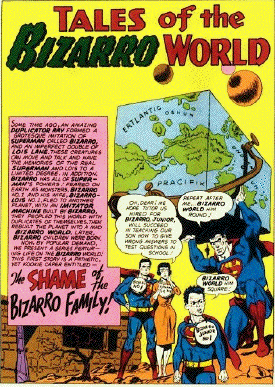

 If we want to trust Obama, he shouldn't abandon his pastor just because it would be the expedient thing to do, esp when it was so clear that the press was misrepresenting his sermons. I watched them, in full, and understood what the Reverend was saying, and I also understood that the context wasn't familiar to me. They were recorded before a member of his congregation was a leading candidate for President, some of them before he was even an Illinois state senator. If you said that this isn't that unusual for a black church, what choice would I have but to take your word.
If we want to trust Obama, he shouldn't abandon his pastor just because it would be the expedient thing to do, esp when it was so clear that the press was misrepresenting his sermons. I watched them, in full, and understood what the Reverend was saying, and I also understood that the context wasn't familiar to me. They were recorded before a member of his congregation was a leading candidate for President, some of them before he was even an Illinois state senator. If you said that this isn't that unusual for a black church, what choice would I have but to take your word. Look, the explanation is really simple. When you rise, even a little, some friends don't get it. Ask anyone who's won a lottery, or Deal or No Deal, or whose company IPO'd successfully. Ask them about the chickens that come home to roost. That's what happened with Rev Wright. I'm sure of it. I recognize it, having been around the phenomenon, on a much smaller scale, many many times.
Look, the explanation is really simple. When you rise, even a little, some friends don't get it. Ask anyone who's won a lottery, or Deal or No Deal, or whose company IPO'd successfully. Ask them about the chickens that come home to roost. That's what happened with Rev Wright. I'm sure of it. I recognize it, having been around the phenomenon, on a much smaller scale, many many times.
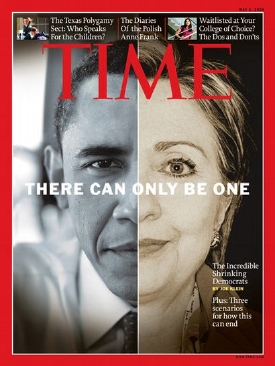

 I've heard Rev Wright compared to Al Sharpton, after his clowning answers to questions at the National Press Club early today. I wondered, then I realized that while he can be a very sincere even profound philosopher, he may end up being more like the
I've heard Rev Wright compared to Al Sharpton, after his clowning answers to questions at the National Press Club early today. I wondered, then I realized that while he can be a very sincere even profound philosopher, he may end up being more like the  I was going to ask Gabe Rivera if he watched Twitter accounts to influence TechMeme. What got me on this train of thought was a
I was going to ask Gabe Rivera if he watched Twitter accounts to influence TechMeme. What got me on this train of thought was a 
 Watching Wright, I wondered if Sean Hannity's preacher could stand up to the kind of objectification this man has withstood. What about Tim Russert's? How about the people who are close to Charlie Gibson and Andrea Mitchell? And how about the CEOs of Time-Warner, GE, the Sulzbergers and the Murdochs? These people have never run for office, they've never been vetted or elected. Could they come out so well after being put through the wringer that Wright has been through.
Watching Wright, I wondered if Sean Hannity's preacher could stand up to the kind of objectification this man has withstood. What about Tim Russert's? How about the people who are close to Charlie Gibson and Andrea Mitchell? And how about the CEOs of Time-Warner, GE, the Sulzbergers and the Murdochs? These people have never run for office, they've never been vetted or elected. Could they come out so well after being put through the wringer that Wright has been through. This of course is a major news event, spinning will start on the web in real time, as it airs. This happens when ABC runs a debate, they hold the broadcast as if it were a sitcom, for three hours, when they should give it the same treatment they give a sports event. People on the west coast, such as yours truly, are not able to be part of the online event as it unfolds. Imho these events should be broadcast simultaneously around the world, and repeated if necessary.
This of course is a major news event, spinning will start on the web in real time, as it airs. This happens when ABC runs a debate, they hold the broadcast as if it were a sitcom, for three hours, when they should give it the same treatment they give a sports event. People on the west coast, such as yours truly, are not able to be part of the online event as it unfolds. Imho these events should be broadcast simultaneously around the world, and repeated if necessary.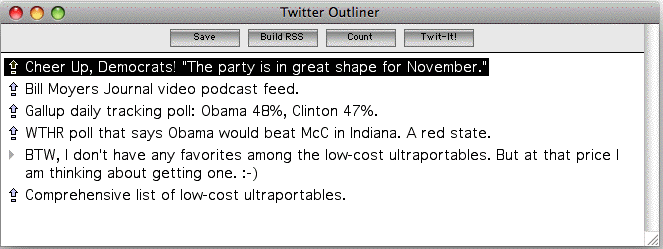









 It wouldn't be a normal day, because tomorrow is the Pennsylvania primary and a lot of polls are coming out right now, and they're presenting an interesting story. But that story can't be told, because our main communiation platform, Twitter, is down.
It wouldn't be a normal day, because tomorrow is the Pennsylvania primary and a lot of polls are coming out right now, and they're presenting an interesting story. But that story can't be told, because our main communiation platform, Twitter, is down. 
 The only person who knows what it means to be on
The only person who knows what it means to be on 
 Every creative endeavor involves the concept of
Every creative endeavor involves the concept of 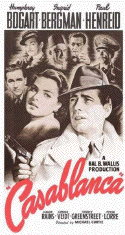
 There's been some confusion about why I tell company reps, when I'm pretty sure I'm going to write up the experience, that I'm a blogger. I say it because I would want to know, if I were in their shoes, that what I was saying was going to be reported publicly. It's the Golden Rule, do unto others as you would have them do unto you.
There's been some confusion about why I tell company reps, when I'm pretty sure I'm going to write up the experience, that I'm a blogger. I say it because I would want to know, if I were in their shoes, that what I was saying was going to be reported publicly. It's the Golden Rule, do unto others as you would have them do unto you. 
 As long as I've been a customer of Comcast I've been writing how much I wish they'd sell their Internet business to a company that doesn't hate its customers so much. But sometimes you forget, when the service is good, you just cruise along, happy and productive.
As long as I've been a customer of Comcast I've been writing how much I wish they'd sell their Internet business to a company that doesn't hate its customers so much. But sometimes you forget, when the service is good, you just cruise along, happy and productive. 


 A Bitchmeme is something that happens on weekends when new stories are in short supply so ideas that otherwise would be buried on Techmeme rise to the top. Usually they're people complaining about something or other which is why they're called Bitchmemes and not Happymemes or Sarcasticmemes.
A Bitchmeme is something that happens on weekends when new stories are in short supply so ideas that otherwise would be buried on Techmeme rise to the top. Usually they're people complaining about something or other which is why they're called Bitchmemes and not Happymemes or Sarcasticmemes.  The prototype app for any development environment is Hello World, a program that starts up, displays the text Hello World and then exits. That's the first thing they show you how to do in any development environment, and it's often the hardest step because to get it running you have to get over all the things that make your computer different from the one the tutorial was written on.
The prototype app for any development environment is Hello World, a program that starts up, displays the text Hello World and then exits. That's the first thing they show you how to do in any development environment, and it's often the hardest step because to get it running you have to get over all the things that make your computer different from the one the tutorial was written on. 

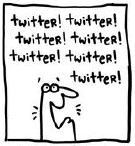
 The last few years when something new hits the tech blogosphere, I usually kick back and think while so many others scramble for position on Techmeme. I find that by doing this I can usually find the nugget that they're all missing, assuming it's an area I'm interested in, of course, and know something about.
The last few years when something new hits the tech blogosphere, I usually kick back and think while so many others scramble for position on Techmeme. I find that by doing this I can usually find the nugget that they're all missing, assuming it's an area I'm interested in, of course, and know something about.  3. Now, what Google announced is really exciting! I'm not kidding. It's even better than I hoped. Yes, it's only Python, but IBM's PC-DOS was only BASIC and Pascal when it first came out, and it didn't matter. Yeah, I preferred C, but I coded in Pascal because that's what you had to do to get an app running. What you're going to see here that you've never seen before is shrinkwrap net apps that scale that can be deployed by civillians. That's a mouthful, but that's what's coming. Why? Because here is a standardized platform that can be stamped out in the billions of units. Maybe Google can't do it, but the perception is that they can. Who is willing to stand up and say Google hasn't nailed scaling? What PCs did in the 80s, Google is doing now. PCs took the black magic out of owning a computer. Now Google is taking the black magic out of operating a scalable web app. Python is the new BASIC.
3. Now, what Google announced is really exciting! I'm not kidding. It's even better than I hoped. Yes, it's only Python, but IBM's PC-DOS was only BASIC and Pascal when it first came out, and it didn't matter. Yeah, I preferred C, but I coded in Pascal because that's what you had to do to get an app running. What you're going to see here that you've never seen before is shrinkwrap net apps that scale that can be deployed by civillians. That's a mouthful, but that's what's coming. Why? Because here is a standardized platform that can be stamped out in the billions of units. Maybe Google can't do it, but the perception is that they can. Who is willing to stand up and say Google hasn't nailed scaling? What PCs did in the 80s, Google is doing now. PCs took the black magic out of owning a computer. Now Google is taking the black magic out of operating a scalable web app. Python is the new BASIC. 
 Yesterday we got our first look at the
Yesterday we got our first look at the 





